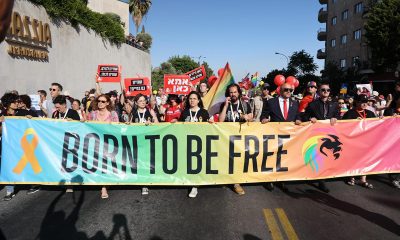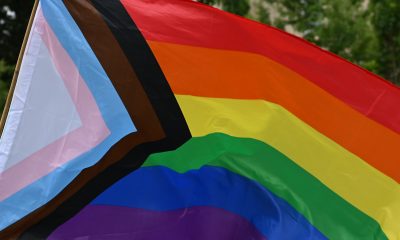Africa
Namibian High Court strikes down Apartheid-era sodomy laws
Gay activist challenged statutes in 2020
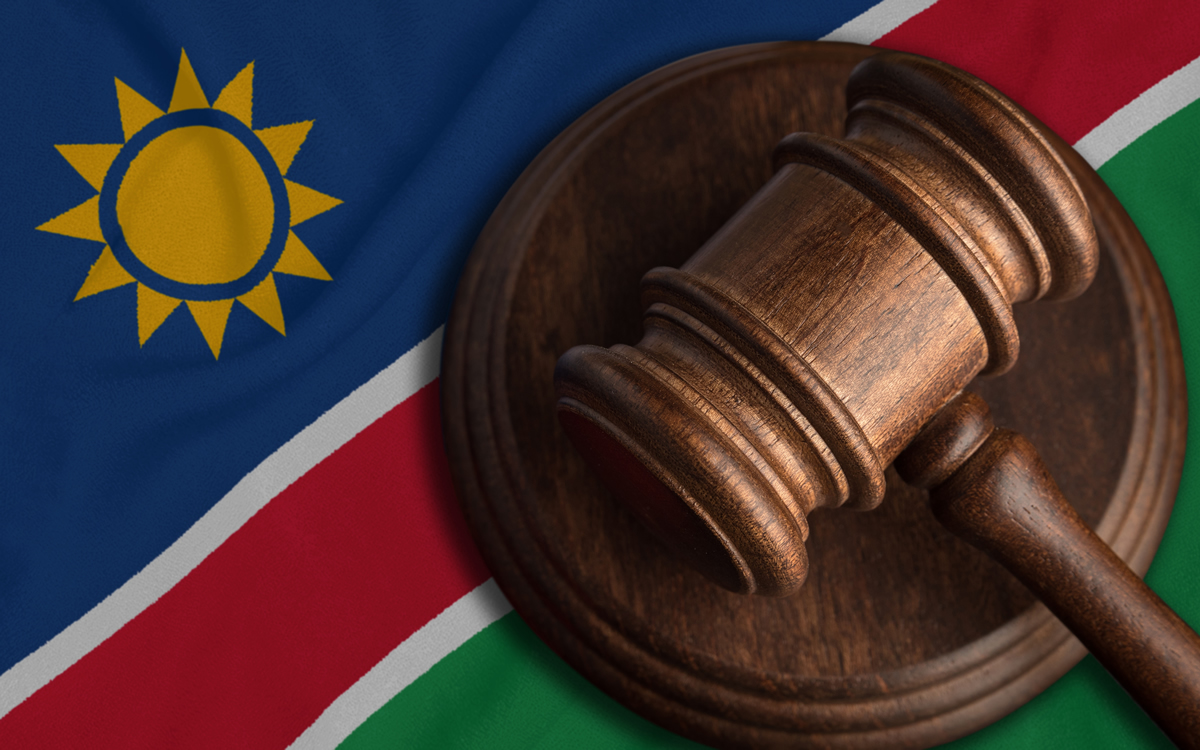
The Namibian High Court on Friday ruled laws that criminalize consensual same-sex sexual relations in the country are unconstitutional.
Friedel Dausab, a gay activist, in 2020 challenged the Apartheid-era statute.
The Washington Blade previously reported Dausab said the Criminal Procedure Act 51 of 1977, which listed “sodomy” as a Schedule 1 offense, and a second law that criminalized “unnatural” sexual acts, promote stigma and exclusion of LGBTQ Namibians. Equal Namibia, a Namibian LGBTQ advocacy group, on its X account praised the ruling.
“Welcome to a new Namibia. A born-free Namibia,” it said.
🚨BREAKING🚨: The High Court of Namibia has declared the apartheid-era Sodomy Law unconstitutional and should be repealed.
Welcome to a new Namibia. A born-free Namibia. #TogetherWeCan pic.twitter.com/asOoMbCPwq
— Equal Namibia (@EqualNamibia) June 21, 2024
Dausab, who challenged the laws with the assistance of Human Dignity Trust, a British NGO, told Reuters he is “just happy.”
“It’s a great day for Namibia,” he said. “It won’t be a crime to love anymore.”
Namibia is the latest country in which consensual same-sex sexual relations have been decriminalized in recent years.
The Namibian Supreme Court in May 2023 ruled the country must recognize same-sex marriages legally performed elsewhere. The landmark decision sparked criticism among leading politicians and religious officials.
Activists say their rhetoric has contributed to increased harassment of LGBTQ Namibians and hate speech against them.
Amnesty International in a press release notes MPs last June passed two bills that “seek to define marriage as a union between a man and a woman, discriminate against trans people and criminalize any support, celebration or promotion of same-sex unions with up to six years in jail and hefty fines.” Khanyo Farise, the group’s deputy regional director for East and Southern Africa, said the organization in recent weeks has “observed alarming rhetoric threatening LGBTI persons in Namibia.”
“Whatever the outcome of the High Court decision on June 21, violence and discrimination against LGBTI people has no place in Namibian society,” said Farise. “Authorities should take decisive action to prevent human rights violations against LGBTI persons and hold perpetrators accountable.”
Africa
Congolese justice minister orders prosecutor general to arrest LGBTQ allies
Constant Mutamba issued directive on June 15, implementation unclear
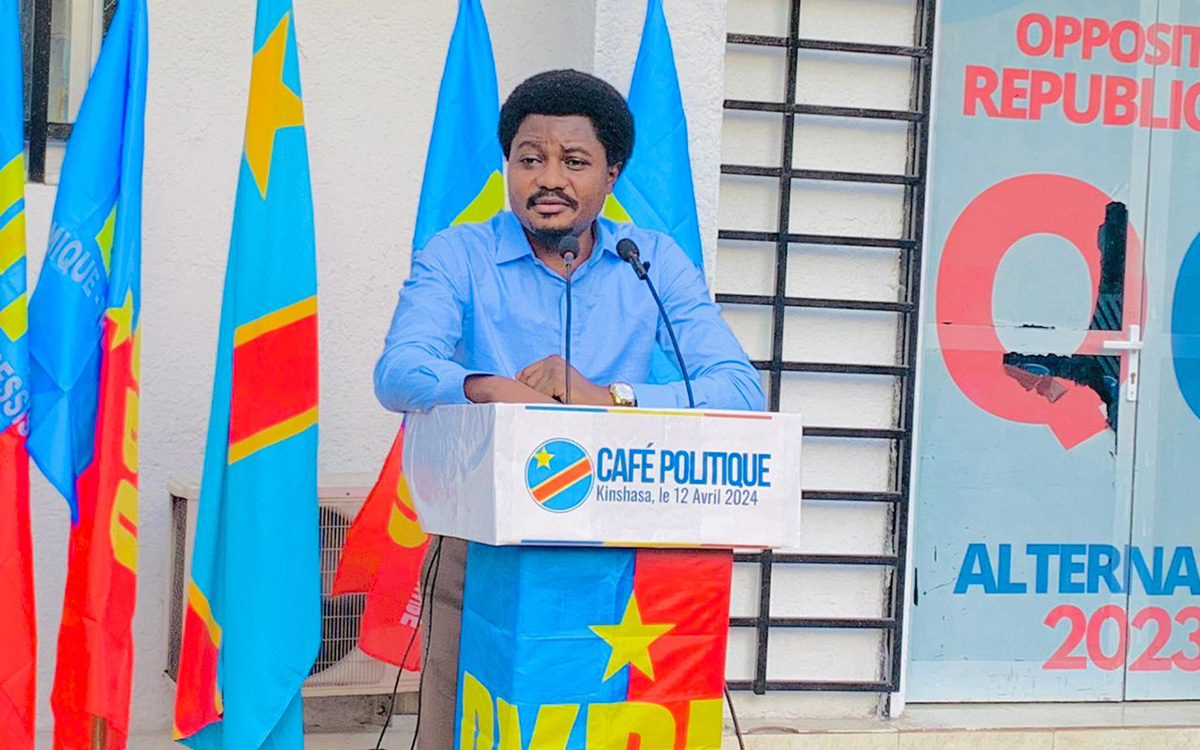
Congolese Justice Minister Constant Mutamba has instructed his country’s prosecutor general to arrest LGBTQ allies.
The newly appointed justice minister in a June 15 communique said the prosecutor general should initiate legal proceedings against people who advocate for the LGBTQ community in Congo.
Although same-sex marriages are constitutionally prohibited, there is currently no law that criminalizes consensual same-sex sexual relations. The communique has raised a lot of eyebrows from social and LGBTQ activists who are asking on what grounds Mutamba issued the communique.
“He could have started by initiating a bill in this direction, but in the current Congolese legislation he is missing the point,” said Jean Claude Katende, a Congolese human rights activist who is the president of the African Association of Human Rights. “If he wants to repress homosexuals, he must initiate a law which must make this behavior an offense and have it punished. He will be arrested for complicity in arbitrary arrests. The constitution is clear, no one can be prosecuted for an act which does not constitute an offense.”
Khelver Hermano, a Congolese social commentator, said the law should not be interpreted based on one person’s emotions.
“LGBT marriage is already not applied in the DRC but the minister wants to incarcerate those who do it informally without a legal basis,” said Hermano. “The law is not interpreted according to our will.”
“Does the penal code in the DRC recognize polygamy? Why don’t we arrest all these known polygamists?” asked Hermano. “Just as polygamists are not prosecuted, we cannot do so against LGBT people.”
Many Congolese people, however, have welcomed the communique, arguing same-sex relations are un-African and unorthodox.
Article 172 of the country’s penal code states a person “who commits a moral crime by exciting, facilitating or promoting to satisfy the passions of others, debauchery or the corruption of persons of either sex under or apparently under the age of 21 years shall be punishable by a prison term of three months to five years or a fine.” Article 176 says a person “who engages in activities against public decency shall be punishable by a prison term of eight days to three years and/or a fine.”
Although not entirely applicable, the prosecutor general can use these two penal code articles to initiate the arrests — the country in recent years has seen some arrests of LGBTQ people.
The June 15 communique is not the first time Mutamba has come out against the LGBTQ community.
Mutamba earlier this year introduced a bill that would criminalize acts of homosexuality. The proposal received widespread support, particularly on social media where many Congolese people described it as a turning point for the country and for the continent at large.
Although parliament has not formally debated the bill, activists are concerned it will pass without many major objections because most MPs have previously said they do not support the LGBTQ community. It remains unclear how the prosecutor general will executive Mutamba’s communique.
Africa
Prominent South African activist elected to country’s parliament
Steve Letsike founded Access Chapter 2
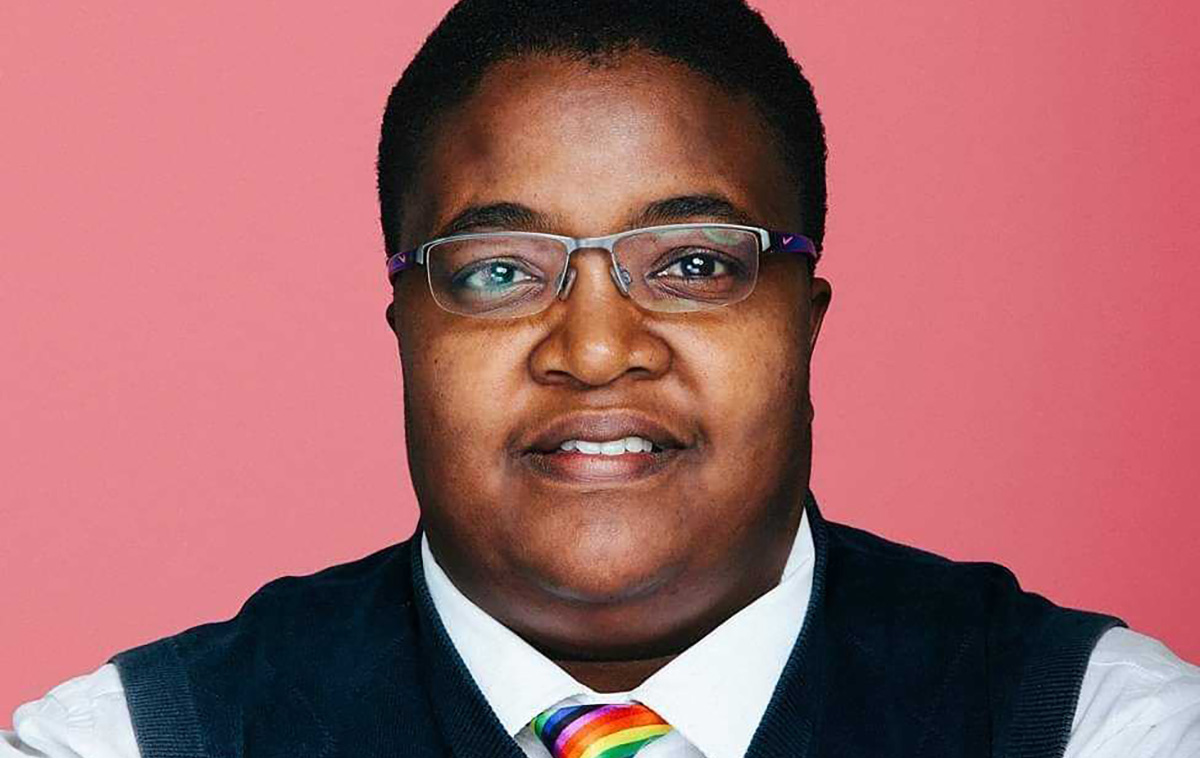
A prominent South African LGBTQ activist has won a seat in the country’s parliament.
Steve Letsike, a lesbian woman who founded Access Chapter 2, a South African advocacy group, is a member of the African National Congress. She is also part of the ANC’s National Executive Committee that determines the party’s direction.
Letsike won a seat in the South African National Assembly in national and provincial elections that took place on May 29.
The ANC lost its parliamentary majority that it had had since Nelson Mandela in 1994 won the South African presidency in the country’s first post-apartheid elections. MPs earlier this month re-elected President Cyril Ramaphosa after the ANC invited the Democratic Alliance and other parties to form a Government of National Unity.
Letsike in a statement to the Washington Blade described her election as “a milestone for the people of South Africa, and also affirmative of our party’s posture that is inclusive and intention to transformation agenda.”
“I am not in parliament for myself but the people that trusted the ANC to send individuals that will put people first,” said Letsike. “In that cohort that includes the LGBTI people like myself. Rooted in the teaching of a just society, that seeks equality and believes in the rule of law. That demand on developmental agenda from a queer lens and clear priorities of the people is important.”
“I am delighted by this task, trust and hope for our people,” she added.
Africa
Protesters vandalize Zimbabwean LGBTQ rights group’s offices
GALZ has reported the incident to the police

A handful of protesters over this past weekend vandalized the offices of Zimbabwe’s largest LGBTQ rights organization.
Although they did not enter GALZ (an Association of LGBTI People in Zimbabwe)’s building in Harare, the country’s capital, they did gather at the gate and sang homophobic songs. The protesters also left anti-gay graffiti on the gate and walls.
Several people after the incident started to question the authenticity of the protesters, arguing GALZ itself organized the protest in order to get funding. They said some of the protesters “looked gay” and even argued the organization had yet to approach the police.
GALZ has sought to discredit some of the reports, while calling the protest disrespectful and uncalled for.
“We categorically condemn the acts of vandalism and intimidation that occurred on Sunday afternoon,” said GALZ in a statement. “A group of individuals claiming to represent various Christian churches descended at our offices. They proceeded to vandalize the property, painting hateful graffiti on the walls. While we respect differences in values, it is utterly unacceptable to deploy acts of vandalism and intimidation against communities who hold different values.”
GALZ said it has filed an official police report, and is “cooperating fully with the ongoing investigations.”
“We call on the authorities to hold the perpetrators accountable for these criminal actions,” said the organization.
GALZ also said it remains steadfast in its commitment to LGBTQ rights, and urged religious and political leaders to be at the forefront of fostering unity in Zimbabwe.
“This act of violence has not been committed in isolation, it is a stark reminder of the ongoing discrimination and hostility that our community faces,” said GALZ.
“We urge religious and political leaders to condemn such acts of hate and to uphold the constitutional rights and freedoms for all citizens to be protected by law regardless of their diverse backgrounds including sexual orientation, gender identity and expression. We encourage Zimbabweans to resort to open and respectful dialogue to address indifferences,” added the organization.
Several United Methodist Church parishioners last month held a protest in Harare during which they protested the church’s recent decision to allow LGBTQ clergy and same-sex marriages. James Kawadza, one of the protest organizers, said it was un-African to engage in same-sex relations.
“Homosexuality is unlawful in Zimbabwe and marriage is between a man and a woman,” he said. “The church has aligned with the rainbow movement, and this is also a threat to our African traditions and human existence at large. Homosexuality is not contextual, it is an abomination where Sodom and Gomorrah were destroyed by fire.”
Section 73 of Zimbabwe’s Criminal Law (Codification and Reform) Act on sexual crimes and crimes against morality says any “male person who, with the consent of another male person, knowingly performs with that other person anal sexual intercourse, or any act involving physical contact other than anal sexual intercourse that would be regarded by a reasonable person to be an indecent act, shall be guilty of sodomy and liable to” a fine, up to a year in prison or both.
Cases of people being arrested under this provision are rare.
-

 District of Columbia5 days ago
District of Columbia5 days agoBernie Delia, attorney, beloved Capital Pride organizer, dies at 68
-
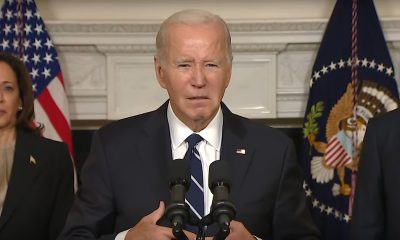
 The White House1 day ago
The White House1 day agoHISTORIC: Biden pardons discharged LGBTQ veterans
-

 a&e features1 day ago
a&e features1 day agoQueer TV anchors in Md. use their platform ‘to fight for what’s right’
-

 Virginia4 days ago
Virginia4 days agoSuspect in 1996 murder of lesbian couple in Shenandoah National Park identified

